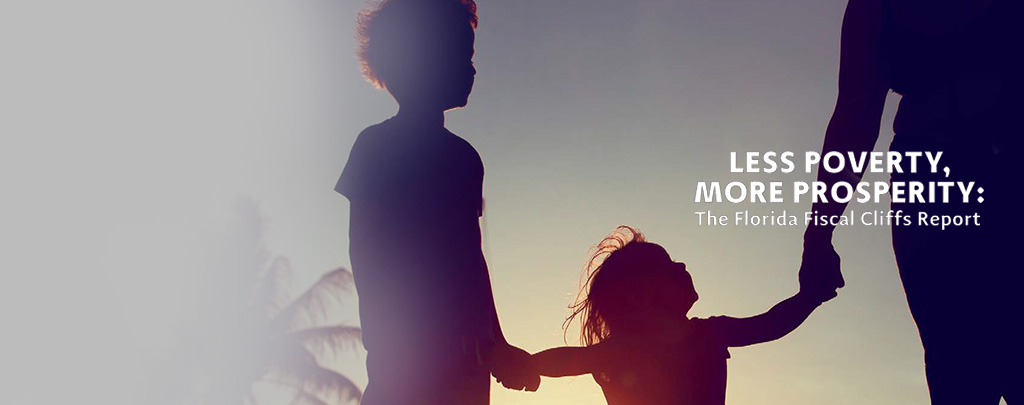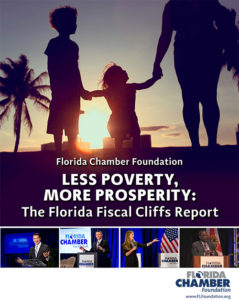Less Poverty, More Prosperity: The Florida Fiscal Cliffs Report

Download Report Join the Initiative Learn More
 By 2030, Florida is expected to grow to 26 million residents and will welcome more than 150 million visitors per year. With this, comes opportunities and challenges, as this growth is expected to come during one of the most disruptive periods, where changes in the landscape of work, technology and talent will create a new normal. With this in mind, the Foundation’s Florida 2030 project is committed to focusing on Florida’s long-term future and ensuring global competitiveness, pathways to prosperity and vibrant and sustainable communities.
By 2030, Florida is expected to grow to 26 million residents and will welcome more than 150 million visitors per year. With this, comes opportunities and challenges, as this growth is expected to come during one of the most disruptive periods, where changes in the landscape of work, technology and talent will create a new normal. With this in mind, the Foundation’s Florida 2030 project is committed to focusing on Florida’s long-term future and ensuring global competitiveness, pathways to prosperity and vibrant and sustainable communities.
The Florida Chamber Foundation’s Less Poverty, More Prosperity: The Florida Fiscal Cliffs Report shows 3.129 million people in Florida live in poverty. In other words, 15.8 percent of all Floridians, nearly 1 in 6, live in poverty. Of that number, 901,772 are under the age of 18. Those under age 5 living in poverty total 267,394 — meaning Florida currently has a 24.6 percent poverty rate for those under age 5.
The report also outlines the impact of “fiscal cliffs.” This “cliff ” occurs when a marginal increase in income results in a loss in public benefits, often times leaving families with fewer resources as income increases. Having a job with upward mobility is important. But unfortunately, this “cliff” becomes a disincentive for many.
The large number of Floridians living in poverty in our state impacts not only individual families, but also businesses, Florida’s economy, and our state’s global competitiveness. Download the latest report by clicking on the image and find out where our state, and your county, stands on prosperity.
What Leaders Are Saying:
“Nearly 950,000 children younger than age 18 live in poverty in Florida. We can, and must, do better. Breaking the cycle of generational poverty is crucial to our state’s current and future success. We appreciate the recognition of current challenges outlined in this report as well as the acknowledgment that a two-generational approach represents a significant opportunity to improve outcomes for children, families, businesses and the economy.”
Dr. Brittany Birken, CEO, Florida Children’s Council
“As we work to move Florida into a future that is prosperous, reports like these serve an important purpose— to show us an unbiased look at where our state currently is and, perhaps more importantly, what our future could look like if we don’t begin to identify ways to create economic opportunities. We must continue to take a look at how we can make all Floridians prosperous and more globally competitive.”
Doug Davidson, Market Executive, Bank of America